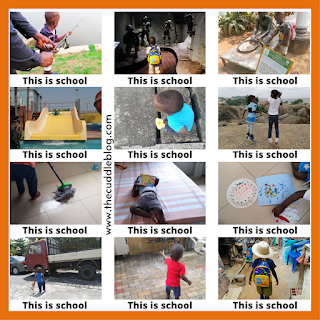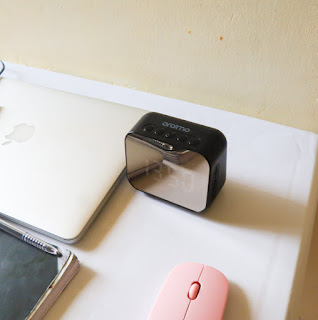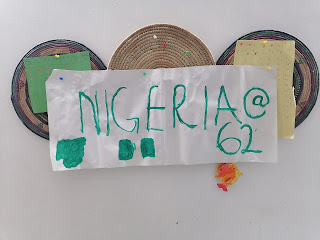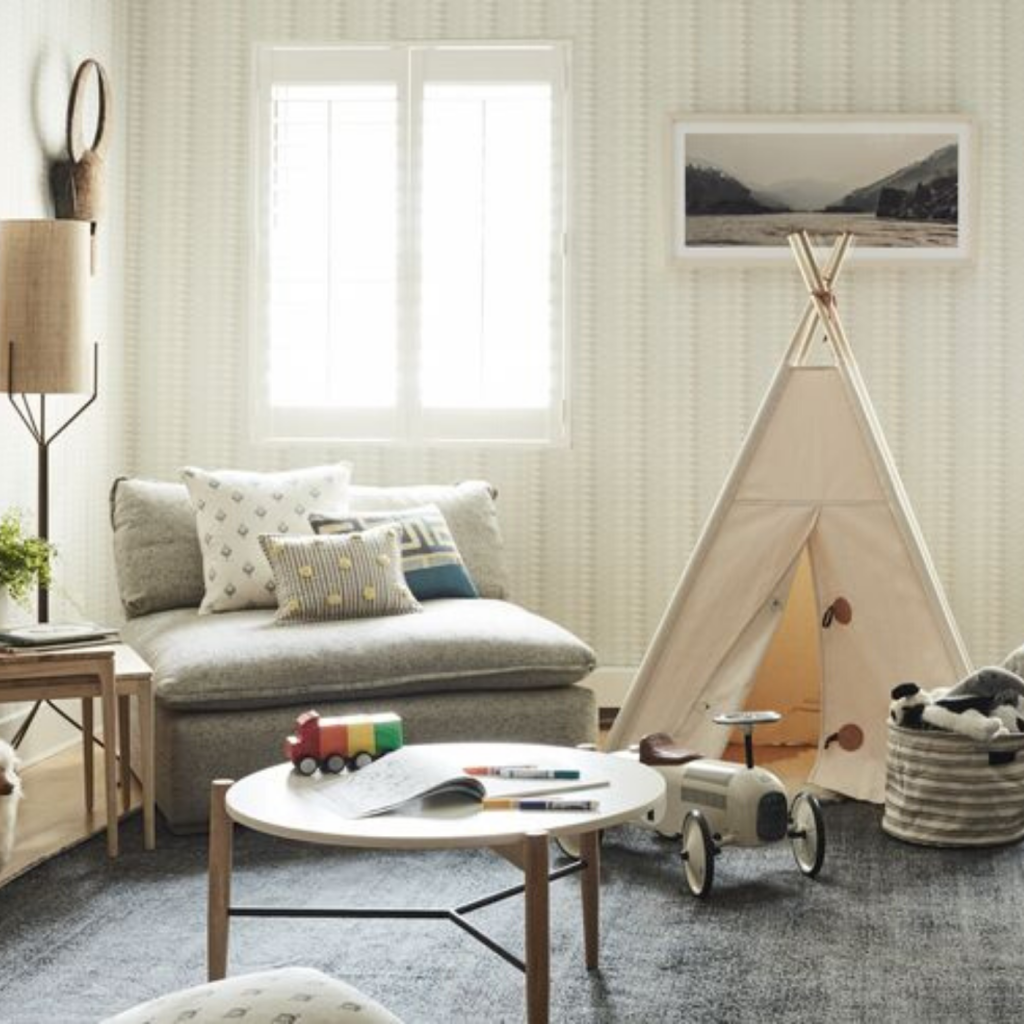.png)
How to effectively Homeschool in Africa
Homeschooling in Africa is still in its early stages when compared to somewhere like the USA that has over 50 years under her belt, while there are thriving Homeschooling communities in countries like Ghana, Kenya, Uganda, Nigeria, South Africa, etc. we still have a dearth of information about Homeschooling in Africa. In this article I would be exploring, our strengths and our unique challenges in Africa with regard to Homeschooling, and how we can still thrive regardless of those challenges.
Introduction:
Let's start with defining what Homeschooling is; I always define Home education as parenting pro max because your child is in your face 90% of the time but that's just my own definition, a more acceptable one is creating an individualized education for your child. It is an alternative form of education where parents take on the primary responsibility for their children's learning. I believe Africans need to embrace Home education as a viable alternative to education and not just for individuals but as a way to curb the current out-of-school children or children from low-income families, but that is a conversation for another day.
Understand The Benefits of Homeschooling in Africa:
Understanding The Challenges of Homeschooling in Africa:
Understanding the legal and regulatory concerns:
Understanding how to map out your child's education in Africa:
For you to make Homeschooling effective in Africa, you have to understand the trajectory your child's education will take so you can know what you would like to do. In the USA for example, there are different ways you can use to record your child's education transcript and everything they get up to so it makes transitioning to traditional school/college seamless, however, in most African countries there are no set guidelines or regulations to follow so you have to be proactive as a parent.
In whatever African country you are, you have to understand where your child will transition back into the traditional schooling or the exams needed to write to get into the university and prepare for that. I know in Nigeria, we write an exam after Primary 6, After Jss3 and SS3 (Jamb & Waec) to enter the university. You have to make a plan ahead to know where you will transition them and prepare them for those exams if you want to.
Understanding the need for assessment and record keeping:
Understanding the need for advocacy & recognition:
We offer free 30-minute consultations if you are new to homeschooling and you need clarity.
What are your thoughts on how Homeschooling in Africa can be effective?

Essential Homeschool Resource List || Educational resources you need in your home if you have kids
General List
Paper Clips
Cloth Pegs
Rubber Bands
Playdough
Stickers
Syring
Kitchen tongs
Toothpick (Can be coloured)
Paper tapes
Wooden Blocks
Marker
Dice
Shaving Foam
Cotton Buds
Ice Tray
Cupcake Pans
Whisk
Chalk
Popsicle Sticks
Perforator
Straws
Tweezers
Arts & Crafts
Cardboards Googly Eyes Scissors Glue Feathers Pom Poms Pipe Cleaner Paint Paint Palette Paint Brushes Paper Plate Crayons Plastic Cups Glitters Foams ButtonsImaginative Play, STEM & Games
Play Kitchen Doll House Doctor Kit Superhero Costumes Profession Costumes Magnet tiles Lego blocks Puzzles Ayo Ludo Chess Scrabble Monopoly Snake & Ladder Connect 4 Get the full list, download the free pdf here
6 resources that helped our homeschool journey || Homeschooling In Nigeria
There are a few things I bought this year that really really helped our Homeschooling journey this year.
What has been your 2022 favorite homeschooling resource?
Please Subscribe to my Youtube channel https://www.youtube.com/thecuddleblog

Homeschooling Conversations 2022: The Making
This year's Homeschooling Conversations has been one for the books in a good and not-so-good way.
It was one of the hardest events to put together for me and initially, I thought it was because i've generally had a tough year with the addition of another baby but I soon realized that it was more than that. I had the least support in terms of volunteers, monetary donations & sponsorship this year, so there was the financial burden I had to carry and decisions to make as to what was important to keep or let go of.
I decided to charge a 500 ticket fee for this year's event because I wanted to have people committed to attending the event but less1 month before the event a huge chunk of people were still having issues with the payment platform, I had to make the decision to either spend the time with support trying to sort it out or conserve my energy and scrape the payment altogether and the latter is what I did.
The challenges faced didn't mean there was no help in the midst of it all, a friend of mine helped to reduce the cost of the venue we used from 600k to 150k by talking to her Boss for us. Someone gave me 50k to add to the payment for the venue. About 3 days before the event someone sent me 80k the exact amount we needed to do a very minimal decoration to make the place look nice just, we were able to get an affordable Livestream person after initially getting a bill of over 300k, after not doing product photography jobs for a while I got some jobs that could help me cover some of the costs and so on all of these seemingly little big things gave me the courage to keep going.
A few days before the event while trying to send emails to everyone with links for the event I realized that the form didn't collect email addresses and at the time we had over 200 people registered. I was so confused for context this is the same form I have used for 4 years, I didn't change anything just duplicated it and changed the year, so how the "email" column went missing is still a mystery to me to date. Thankfully, phone numbers were collected and I quickly went to work getting a good Bulk SMS platform to help send text messages with the link and my friend Ruth helped me to send a follow-up message.
On the day of the event, I woke up excited and I would say everything went smoothly for Day 1, my excitement spilled into Day 2 with so much nervousness because it was physical and so many moving parts which also meant after I do ALL I know to do, MANY things could go wrong. We were ready for the slated 10am but then one of the speakers was in traffic, the attendees came late too so we had to move the event by an hour.
We could only send messages to the limited phone numbers and emails we had and of course, some people sent me messages to ask, some called and it all just made me agitated, sad, and upset. We started and things were going smoothly up until the middle of the event and the internet in the hall stopped working which interrupted the Livestream. We were all looking for alternatives and all till it was finally sorted. Hardly sat down throughout the event, just monitoring the Livestream and making sure one more thing doesn't go wrong.
I was the last speaker for the day and if you by chance listened to the presentation, I was not on my A game at all, I was so sad at that point at how everything went that I kept repeating most of my words and all the things I prepared in my mind just flew out the window.
I met a number of people that day too and I am grateful for every single person that came that day.
When I got home that night, I couldn't hold back the tears, I cried about how difficult it was to put the event together, I cried about how my expectations were shattered by the number of people that didn't show up for the event, I cried for the physical pain and tiredness my body felt, I cried for the sacrifice. I cried because I could finally exhale.
My husband was there to give me some perspective and remind me why I started in the first place.
I had to log off my social media for a bit to gain some clarity because I started questioning and doubting myself and why I was doing what I was doing and ultimately weighing if it was worth it all.
I've spent some time resting and gaining clarity and while I don't know what the future holds I am positive that all the past conversations we've had was worth it and I am grateful for everyone that contributed one way or another.
Ruth
Lois
Tobi
Chinwe
Mercy
Mercy
youreverygirl
Adekemi
Chiamaka
Deji
Chioma
Toyin
Nkechi
Your contribution made a difference in bringing the event to life. I am hopeful that in spite of all the challenges everything is working out for good.
You can catch the replay for the 2022 Homeschooling Conversations below:
Full Day 1: Here
Full Day 2: Here
Playlist of the different sessions: Here
If you joined the event and you have feedback please leave a comment or send an email to thecuddleblog@gmail.com
Thank you.

Tips For Homeschooling with a baby || Homeschooling in Nigeria
1. Give yourself grace: It's important you give yourself grace. You just had a whole baby, bask in it. Don't be in a hurry to "get back on track" enjoy life as it is now, it's a season. It will pass.
2. Every opportunity is a learning opportunity, live and learn: I know first hand you'd be tired to your teeth, take every opportunity as it is, a learning opportunity. Let your other child(ren) learn as they are living. E.g Make breakfast together, Take a walk with the baby, read a book together... Etc.
3. Bond with older kid(s) when baby is asleep: Trust me it doesn't have to be anything fancy, your undivided attention is all they need. Answer all the questions they have, ask questions about what they are building, give hugs. Look out for the needs of your older child(ren) above your baby's own (except it's life and death 😂) because the baby will be fine...
4. Let their curiosity guide what you do: Have you seen kids? They have questions per second, what questions is your older child asking? Let it inform what you do per time.
5. Do what you can, leave the rest: if you use boxed curriculums, do what you can. The fact that you think you have to go through a certain number of things in a day can stress you out so, do what you can and leave the rest. Did your child learn something? That's good enough. Don't think your child is "behind" because what are we measuring by? Whose calendar? There's no rush.
6. Use the great resource - OUTDOOR! This is a saving grace. Go somewhere together, explore, experience new things, and have fun. Watch out for opportunities to learn and latch on to it.
7. Use the other great resource - SCREEN TIME: When all else fails, When you need that nap when you need that break... Well, you know what to do. and if you are not into using screentime as a tool, skip this step
8. Brush off the guilt: The guilt can creep up on you, but don't let it win. It's a new experience for everyone in the family and learning is taking place even for your older child. They are learning to be more accommodating, gentle, responsible for another member of the family, be loving, disciplined, patient, kind and these are relevant skills too.

Freedom || Importance of free play
According to UN
"Play is so important to optimal child development that it's been recognized by the United Nations as a basic right of every child" [source]
In my homeschool journey, I have found this to be true, with a mix of structured and unstructured activities play has been all we have engaged in my home and it's been 3 years and I don't regret it at all. I went through a bad patch at the end of 2020 dealing with loss and really trying to ensure my mental health didn't deteriorate, I had no energy for homeschooling so I let my son watch a lot of TV and free play and I first hand saw the benefits of free play. Before this, we only did unstructured play twice a week but seeing him engage in free play for about 3 months and I was convinced.
What Experts Say
In a special report on play, the American Academy of Pediatrics (AAP) outlined a host of payoffs from free play, including that it:3
- Allows kids to use their creativity and develop their imagination and other strengths
- Encourages kids to interact with and explore the world around them
- Helps children adjust to school and enhance their learning readiness, learning behavior, and problem-solving skills
- Helps kids learn and practice self-regulation
- Helps kids build decision-making skills
- Teaches kids to work in groups so they learn to share and resolve conflicts
- Helps Build Life Skills
- Free play supports the physical development of children
Find below some of the benefits of free play that I found in my son;
- Focus: My son has an attention span of like 2-5 mins for structured play but when he started free playing he can be with his activity for hours. I was amazed at the difference and all that changed was that he made the decision himself of the activity he wanted to engage in.
- Creative thinking: I could see the display of his creative thinking in how he engaged in his play.
- Opportunity to display his knowledge: He had a chance to put on display all the things he's been taking in. He's never had this much opportunity to really put on display all that he's taken in.
- He was happier: While I still don't have the level of energy for his play all the time, I noticed how generally excited he was towards his activities and he probably wished I could continue to drive his police car behind him all day.
- Imaginative play on steroids: I mean on steroids. He would have a full-on script of each of his imaginative play that was just so amazing to watch sometimes.
I also recently saw a post from an unschooling mum on Instagram about freedom in homeschooling;
"...Experiences will ignite their awareness, repeated exposures will highlight interested areas, and freedom will show where their true happiness lies.
.
This life of childhood isn’t about teaching little bits about everything there is to know all because it may be questioned on an exam paper at age 16 and 18. It’s about giving freedom of experience and then allowing time for the children to live out the main areas which fill their hearts with joy.
.
That’s where the Einsteins come from. Not just from revision and stress. Not from pressure and memorization. But from a genuine interest and passion, and the time and space to let that passion grow until it’s expertise.
.
It isn’t about who is the most clever or intelligent. It’s simply about being free to find happiness and to live in that happiness for a lifetime.
.That is homeschool!" - @living.the.homeschool.life
I am still looking forward to embracing so much more free play in our homeschool life, while I think through about how it would work I am greatly convienced of it's benefits and importance.
Do you engage in free play in your homeschool? What has your experience been?
Follow me on Instagram @thecuddleblog lets connect
Source:
https://www.verywellfamily.com/the-importance-of-free-play-2633113#citation-1
https://myfirstyearspreschool.com/the-importance-of-free-play-for-kids/

Simple guide to socialisation in your homeschool || Let's talk about socialisation || The Cuddle Blog
One of the biggest questions you get when you say your child is not going to a traditional school is "How will he socialise?" this is one of the disadvantages people bring up about homeschooling which I would say is not a disadvantage at all.
Let's talk about socialising!
For us to better understand what this is all about let us define socialisation according to the dictionary;
a continuing process whereby an individual acquires a personal identity and learns the norms, values, behavior, and social skills appropriate to his or her social position.
Based on this definition, this is precisely what homeschooling is about, but we would guess that what people are mostly talking about is the social skills that are required to be learned by kids and individuals. So, what are the social skills that children are required to have;
- Sharing
- Cooperating
- Listening
- Following Instructions
- Respecting personal space
- Making eye contact
- Using manners
- Taking turns
- Helping others
- Asking for help
- Not interrupting
- Waiting Patiently
- Be present and be available to engage with them all the time
- Have playdates so your child can have those peer-to-peer interactions - I know we can't do a lot of that right now but as much as you can.
- Go outdoor, talk to the people walking on the street, talk to the delivery guy, talk to the people who come to work in your house by extension your child will start talking to them too, they will practice their social skills like that.
- Enrol in classes outside of your normal routine. This will allow your child to engage with different people outside of their routine.
- Go everywhere (as possible) with your child.
- Sharing: Share what you have with your child and make the conscious effort to ask your child for something that is for them too. This has to be done deliberately and often too. Say "Thank you" or "It's so nice of you to share your drink with mummy" over time they won't have a problem with sharing.
- Cooperating: This is a tricky one because even from taking a bath in the morning, it is always a struggle but you have to continue to demonstrate the appropriate actions you expect and also say it to them. Be sure to give an advance warning before it is time "In 10 mins we would have to take a bath"
- Listening: Actively listen to your child whenever they call your attention to tell you the same thing for the 100th time, in modelling listening to them they know they should listen to you. Drop down to their level, call their attention and hold it.
- Following Instructions: Start from single instructions "Hey baby, please come" then move on the multiple instructions "Hey baby, pick up the toy and bring it" While playing together or doing a craft you can continue to show them how to follow instructions.
- Respecting personal space: Once your child can listen to simple instructions you can always tell them on different ways they can respect personal space e.g "Please knock the door" "Mummy is taking a bath right now, please come back later" encourage them to also take their space if they are upset or want to play alone "You can sit over there if you want to calm down" they won't always get it but as you remain consistent with the instructions they will get it.
- Making eye contact: You have the opportunity to help them make eye contact with you everyday, while taking a bath, eating, playing. I usually say "Look at me" right before I say anything to ensure that he looks me in the eyes. If your child doesn't want to constantly make eye contact please consult your doctor.
- Using manners: Showing and telling in everyday situations is the best way to go about this. If you want your child to say "Thank you" tell them "Thank you" if you want them to be polite, be polite not only to them but to everyone around you. They watch you for what to do and how to act.
- Taking turns: Look out for opportunities in your day to take turns e.g taking baths for your child, give them the sponge and ask that they scrub themselves then you ask for your own turn, take turns in brushing their teeth, take turns in preparing for dinner/breakfast etc.
- Asking for help; Encourage your child to ask for help but ensure you emphasize the need to try first. Children get frustrated easily as they are getting control of their emotions but you have to get down to their level and let them know they need to try first, use their words to tell you they need help if they can't do it. My son is 3 now and he is trying more before asking for help or throwing a tantrum. There will be a time that they will only throw a tantrum but you have to acknowledge their emotions and guide them on the appropriate approach.
- Not interrupting: This one is very tricky around younger children, one approach I have seen around is teaching your child to stand beside you (while you are talking) and holding your hands as a way of indicating that they need your attention and you squeezing their hand to say you hear and will give them the attention they need as soon as you can. They way, they don't feel ignored. This will be hard to achieve with younger children but telling them early will be a sure way to achieve it faster.
- Waiting Patiently: Start with something they are interested in and ask them to wait for it; e.g baking, they can practice waiting patiently as they watch the oven of their yummy goodies baking, waiting for water for swimming to fill up, waiting for tv time. Just be creative and see a way you can let them know the joys of delayed gratification.

5 Playroom Ideas that will spark creativity in your child by Lagoia Designs || Guest Post
- PICK THE RIGHT FINISH

.png)
.png)





























